#some comic spoilers as least the comics as I've come to understand them which MAY be incorrect
Link
Chapters: 1/1
Fandom: The Sandman (TV 2022)
Rating: Teen And Up Audiences
Warnings: No Archive Warnings Apply
Relationships: Death of the Endless & Hob Gadling, Dream of the Endless | Morpheus/Hob Gadling
Characters: Death of the Endless, Hob Gadling, Dream of the Endless | Morpheus
Additional Tags: hob and death friendship centric, discussions of death and mortality, Enemies to Friends, Kinda, Background Dreamling, some comic spoilers, Fix-It, Major Character Almost Death, The Angel of Death & The Patron Saint of Living, Grief/Mourning, Death character study, hob and death rescue dream from his inevitable tragic ending, implied depression, the power of Just Not Fucking Giving Up, Just Say No to mortality, canonical minor character deaths, death of children, Death in Childbirth, all canonical - Freeform, Platonic Relationships, Death, Life & Death, Alternate Universe - Canon Divergence, Missing Scene
Summary:
Humans cannot see Death at work.
But Hob can.
#there is no way i'm posting this 10k thing on tumblr 😂#but! if you wanna read a ton of musings about death and hob's relationship here it is#some comic spoilers as least the comics as I've come to understand them which MAY be incorrect#so keep that in mind#😂#my writing#the sandman#death of the endless#hob gadling#dream of the endless#there is SO much to explore in this relationship that this legit could have been 4x longer#but i got to the point where i was like ok. that's enouhg for now XD
52 notes
·
View notes
Text
While working on a little comic strip with Via and her mom (which I'd like to post as soon as I find an artist and if can't find one I'll post my ugly sketches), I've thought a little about their relationship, it's really a pity that till now it's never been shown any moment between them, I understand they want to emphasize the relationship with her dad more than anything, cause they want to point out they're closer to each other than she is or could, ever, be with her mom and while I don't doubt they have a good dad/ daughter relationship in general, I've noticed that Via has certain attitudes towards her dad sometimes. She loves him yes, but she can be extremely harsh with him when he does something wrong like the time they went to Loo Loo land, she was pretty much annoyed and angry for the entire episode, probably due to her parents fighting ofc, but she had it in particularly for her dad...and also the time they had to go and stargazing together, but he couldn't accompany her cause he was busy elsewhere, making her angry once again and in both situations we see her "run away" her dad and she does it again a third time, now
Spoilers ahead don't keep reading if you don't want to get spoilered
I don't know how many have seen already the leak of the last episode of this season, cause it's still around the internet Idk why ( dunno why the creator says nothing about it, I've never seen her asking once to remove any leaks from the her patreon page ever, even recently there was another leak, I wonder if it's all planned..sorry I'm quite suspicious when it comes to the entertaining world but whatever) and again she is extremely angry with her dad and she literally turns her back on him, and this time she doesn't return home with him. I saw many saying that Stella is most likely manipulating Via to make sure her daughter will be on her side, in proper time! But if the two of them have never had a good or any relationship at all, (may it be because Stella is a very affectless mom or for other reasons) and since she loves her dad very much why is it that Via even believe what Stella tells her? In the leak we can see that Via clearly overhears her mom telling her uncle that Stolas has phoned her and tried to communicate with Via, but Stella denied him that and lied to her daughter or simply didn't tell Via that, also I'm pretty sure she is well aware of her mom's behaviours soo I don't understand why she didn't even get mad at her mom, dunno you but if I were in her shoes and if I would have found out my mom have done something like that to me, knowing how much I care about my dad, I would have been very angry at her, but Via didn't do any of that, she just isolate herself in her room and not only, in the end she even decides to stay with her mom and uncle!! 👀 I'm convinced that There is some truth behind every lie, and probably whatever stuff Stella is telling her daughter, the rare occasions they talk at least, have forced Via to "believe"her mom, otherwise I can't explain why she decided not to return home with Stolas and forgive him again, but instead she thinks it's better to stay with Stella.
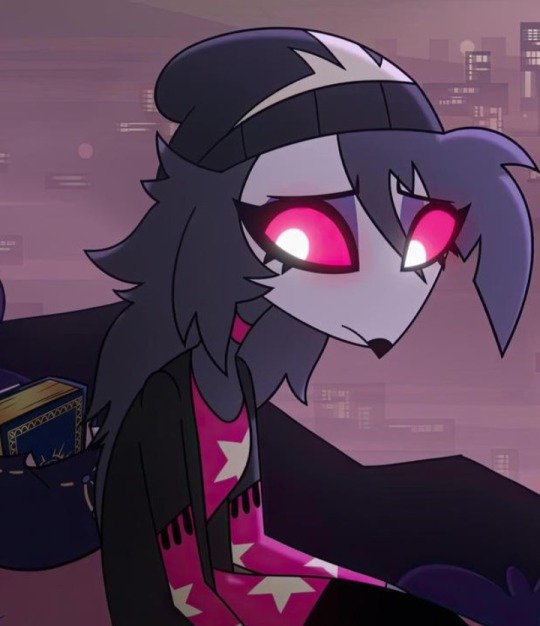

Personally
I think Via has been a little bit neglected by her parents at some point, also I don't think there's a lot of communication between the 3 of them, maybe cause the parents are too occupied to fight each other all the time and pay her no attention.
I have also this doubt on why, between her parents, the one she is always "mad" with is her dad, I still have to see Via complaining or saying anything against her mom( It could be cause they're not that close to each other ofc so she doesn't even consider her mom much)
1 note
·
View note
Text
Long ass post about the Eternal family not being a copy-paste from ATLA (aka I like the memes but my god can you please stop)
Because some people truly think that Vaylin is off-brand Azula, Arcann is Zuko and so on.
It's. Called. A. Trope. (I mean how often do we come across abusive manipulative fathers in media? Mothers who couldn't much to change anything? Children, desperately looking for their parent's approval no matter what?)
Of course, you have to consider the fact that the writing of ATLA is simply better than of KotFE/ET, so this might have been one of the reasons why people say that.
Spoilers for Avatar: The Last Airbender, Knights of the Fallen Empire and Knights of the Eternal Throne expansions!
Okay, so here's my unprofessional, maybe biased, not super deep take.
(not going to mention that all of them are members of royal, ruling family, kinda obvious)
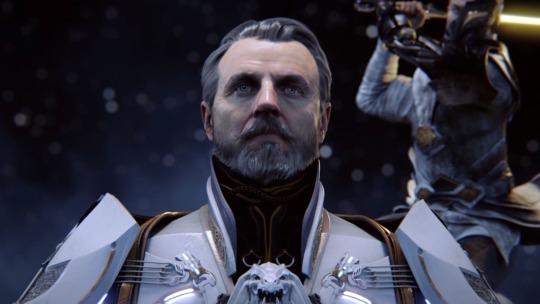
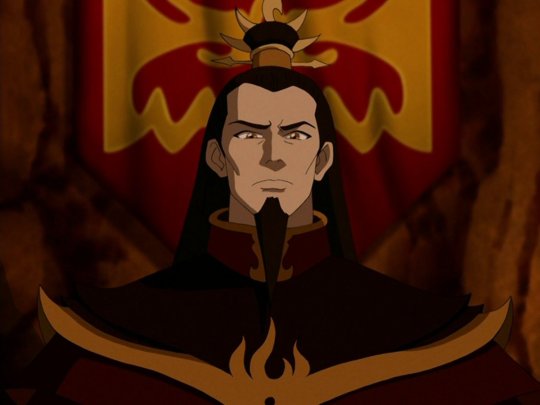
What roles do they play in their stories? Well, both Valkorion and Ozai are main antagonists, but their presence throughout the story is very different. Ozai is rarely shown in first two seasons, we don't even see his face until season 3. He doesn't have a direct connection to the protagonist, they only meet at the very end of the show, and Ozai's role is to pose a threat to the world, while Aang's is to save it. Valkorion, on the other hand, is constantly on the screen, interacting with the main character, challenging their viewpoint and influencing them directly. His end goal is similar to Ozai's (destroy everything and be the only ruler of the his nation), but with one major difference - he's trapped in Outlander's mind, so to achieve his goal Valkorion attempts to take control of the main character. Their interactions play important role in the story, and we spend a lot of time with Valkorion.
In addition to that, their relationship with children are also not exactly the same. It seems like Azula is Ozai's favorite and Zuko is a failure in his eyes until he meets his expectations, and the same goes with Vaylin, Arcann and Valkorion, right? Well, partially. Indeed, Valkorion and Ozai's treat their sons in similar ways (are disappointed in them until they meet their expectation by doing something that goes against their morals), but when it comes to Vaylin and Azula, it's not that easy. See, Valkorion claims that Vaylin was always his favorite creation (even though we know it's actually his empire), and he certainly seems to take pride in her potential in the Force. But her power is the very reason he's afraid of his own daughter, and in this fear Valkorion literally locks Vaylin away and allows to put her through physical and mental torture just to make sure she won't become a threat, won't overpower him. Maybe he thought of her better than of Arcann, but she wasn't his favored child for sure. I don't want to say that Azula hasn't experienced abuse from Ozai, but for the most part he clearly favored her over Zuko. He has never shown fear of Azula's power and abilities (or at least I haven't noticed), quite the opposite - allowed her to do a lot, as long as she brings results.
I could also mention their slightly different characterization (mostly that we get more characterization of Valkorion, get to learn his motivations, views, philosophy and all that, also he's portrayed as more nuanced, even if he not really is) and role in their respective governments (ozai is one of many Fire Lords and arguably not the greatest, while Valkorion is a god to citizens of Zakuul, their only Immortal Emperor), but those are details, and I think you get the point.
What's similar: role of the main antagonist, manipulative and abusive father, goal of destruction of everything that isn't their nation/empire, relationship with disgraced son.
What's different: presence in the overall narrative, relationship with the main character, relationship with daughter, role in their societies.
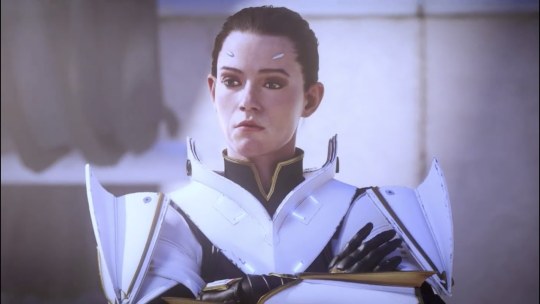
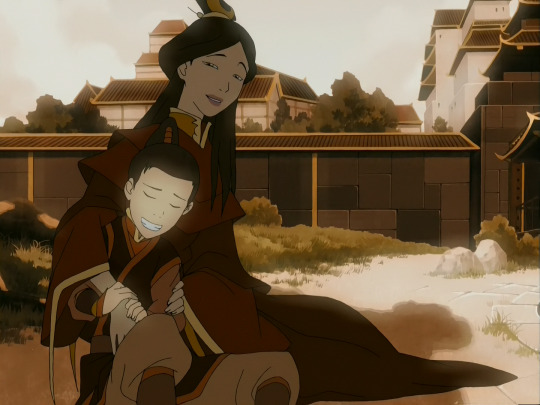
Senya and Ursa are even less similar. Yes, they both are mothers who love their children, but have to leave them, but these are probably the only things they have in common. Just as with Ozai and Valkorion's presence throughout the story, Ursa is only shown in flashbacks (for obvious reasons), and Senya is one of major characters in KotFE and (a bit less major) in KotET. Ursa leaves because she has to kill Azulon in order to save Zuko, and later isn't present in the story (I'm aware that her fate is told in comics, but we aren't talking about it). Senya leaves because when she tries to take children with her, they refuse, and she understands that she can't force them to, nor she can help them to break free from Valkorion's manipulations. For a long time she's absent from Arcann ad Vaylin's lives, but at the time of game events she attempts to save her children and stop the madness and destruction they've caused, and it isn't a small part of the story.
I also want to add that their relationship with Ozai and Valkorion are also different, but can't say much about Ursa. I heard that she didn't choose this marriage and suffered emotional (and maybe physical???) abuse from Ozai. I can say with confidence, though, that Senya genuinely loved Valkorion, and strangely enough, he seems to at very least respect her. But, of course, this wasn't the best marriage either.
Plus, we see more of Senya's relationship with Vaylin than Arcann or Thexan, but with Ursa we see her more with Zuko than Azula. Just a detail to remember.
(also Senya is simply a better character but that besides the point, moving on. in this house we stand Senya)
What's similar: role of loving and caring mother, abandoning their family at some point.
What's different: presence in the overall narrative, relationship with husband, characterization in general.
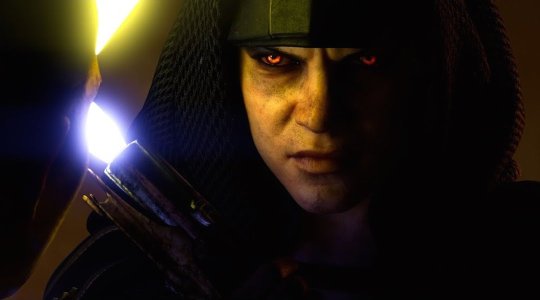
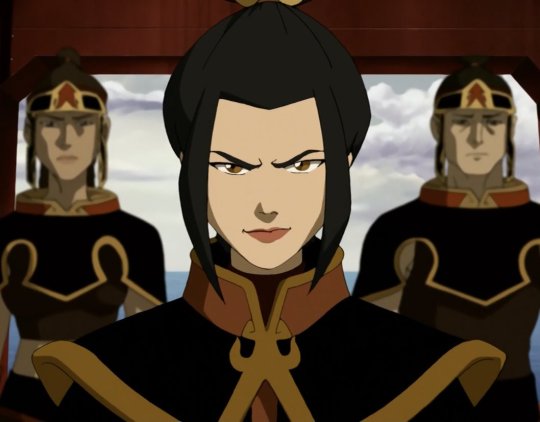
Boy, where do I even begin. Vaylin and Azula are similar in that they are both extremely powerful (one is firebending prodigy, the other is potentially stronger than Valkorion), both are cruel "craaaaazy" (i hate that cliché), both are younger sisters, have serious mother issues (seemingly more so than father issues), both go through betrayal of people they could always rely on, which eventually leads to their downfall. But when I took a look at their personal arcs, it became clear that they aren't the same (unfortunately, Vaylin's arc is very rushed and underdeveloped, but we'll have to go with what we have and my personal view, sorry).
There's a really good video about writing corruption and madness, and I'm going to base my thoughts on it. To summarise it: a good corruption arc should have 4 components:
- the character has a specific goal (or a goal and subgoals);
- in pursuit of said goal they become the cause of a significant event that brings serious consequences;
- as the result of these consequences, character abandons their morals, ideals or a code in pursuit of goal;
- character either will not achieve their goal or will succeed, but it won't be enough to satisfy them.
And then the author brings Azula's arc as one of the best examples of compelling story of corruption (so basically, she represents it perfectly). In short, Azula's main goals are perfection and control, and subgoals help achieve the main ones. In pursuit of these goals, Azula causes Mai and Ty Lee to betray her (by pushing them too far to do something they wouldn't do), which then causes her to become paranoid, which makes her to attempt controlling everything and everyone around her, *breathes* which makes her lose control over herself and ....
Now, I thought if Vaylin's arc could fit into a corruption one, and next part will be based a lot on my assumptions and personal view of her character (plus rushed writing doesn't help), but I think yes (or at least mostly). The difference is in goals, ideals and details.
While the story strongly makes us think that Vaylin's goal is freedom (or control over her life and everything around her) or power and destruction, I think it's actually self-determination (which was said by Tenebrae in 6.2) and feeling safe. Let me explain (and here I thought this would be a short comparison). Sure, when Valkorion caged Vaylin on Nathema, he took choices and control over her life from his daughter. But let's not forget whom Vaylin blames for this (even more than Valkorion): her own mother, and I think this details tell us that the most important thing that Vaylin lost on Nathema is feeling safe. Then, after Arcann brought her home, I assume Vaylin still didn't feel safe enough under Valkorion's rule, still too afraid that he'd simply send her back to that hellish place.
It's when Valkorion is struck down Vaylin finally has a feeling of personal safety, even if she isn't the one on the throne. Why? Because back on Nathema there were two people who haven't turned on her - Arcann and Thexan (yes, this is also a huge assumption, bc the game states that only Thexan visited her, but it doesn't make much sense).
I've always noticed (and I'm not alone in this) that her behavior in Fallen Empire is different from the way she acted in Eternal Throne. Most likely bc of rushed writing, but I see a character driven reason here. In first of these expansions, Vaylin is the second person in power on Zakuul, and with Arcann being in charge, person she can trust more than any other living being, she feels safe - she can test her power, and now Valkorion won't prevent it, she can do pretty much everything she wishes, and the most Arcann will do about this is mildly complain (without blaming her). Really would be nice if we got to see any normal hobbies of Vaylin (like wasn't there something about books or art?), but I digress. She might have some questions about Arcann's tactics, but they get along just fine. The important thing to note is Vaylin not seeking to hunt the Outlander personally, to rule or conquer the rest of the galaxy, or trying to achieve absolute freedom or power. She's kinda there.
This, however, changes when Arcann doesn't allow Vaylin to kill Senya. Their relationship was getting somewhat worse towards the end of KotFE, but this is a turning event Vaylin caused by attempting to strike her mother. By saving the person Vaylin blames for all the trauma from sending her to Nathema, Arcann threatened her feeling of safety. And now Vaylin starts to believing that to achieve safety she now needs to kill people who hurt her (that's why she's so determined to find Senya and Arcann), take the throne and hunt down Outlander (she was manipulated by SCORPIO to these subgoals).
(The following is the weakest, I'll admit, but I hope I can at least express what I see). So, in trying to achieve goals she didn't want before Vaylin loses in self-determination, being either driven by overwhelming anger or manipulated by others (SCORPIO or Commander on Odessen), desperately trying to accomplish anything, or even goes against her morals (like by erasing GEMINI's free will protocols, when earlier she agreed that freedom to choose is important; or breaking the deal on Odessen). All of these result in her downfall.
But even this isn't the end. The key difference between arcs of Azula Vaylin lies in it's resolution, or that Vaylin have a chance to overcome corruption in the main narrative (and Azula doesn't. again, not including comics here, sorry). After death, Vaylin is again controlled by Valkorion in Outlander's mind. First time physically (she can't resist it), second time mentally. This is where Vaylin has to choose - kill brother who betrayed her and Commander who killed her, or go against Valkorion, person responsible for almost all of her pain and trauma. She has t choose by herself, and I think it's a good start.
Now, before 6.2 we all thought Vaylin was dead for good, but that story update hinted at possibility of her coming back to life. What I like to think is that now that she dealt with people responsible for her trauma (helped defeat Valkorion and actually for once listened to Senya), Vaylin can now have a different life, finding herself with support of someone she doesn't hold a grudge against and who treats her well (Satele, I mean).
I'm so sorry for going into details, but I needed this long explanation to present the point (and I suck at explanations). As said before, this is my version of her arc, and most likely wrong interpretation, but even with personal freedom of choice, Vaylin character differs from Azula a lot.
Need I mention that Vaylin relationship with Arcann and Valkorion are drastically different from those between Azula, Zuko and Ozai?
(Also a little detail - with royal family of Fire Nation, Azula is the golden child, while with Tiralls it's actually Thexan, not Vaylin).
What's similar: role of extremely powerful, emotionally damaged daughter with little to no regard towards others, close people betraying them, resulting in their downfall.
What's different: characterization, role in the narrative, relationship with father and brother.
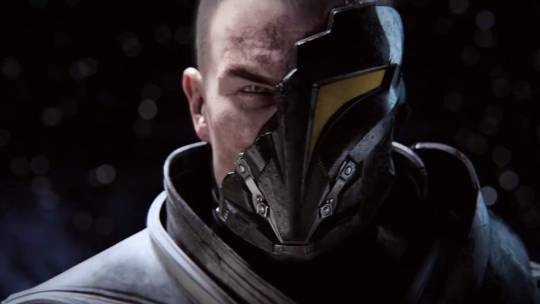
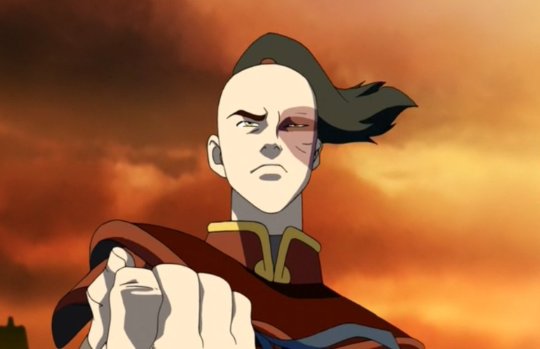
Arcann and Zuko is the most difficult part, but I still believe that calling Arcann just a cheap copy of Zuko is incorrect.
So, they fall into role of less successful son, always getting disapproval from father, being in shadow of more talented sibling, both obsessed with capturing the main character but ending up helping them end the war after going through a redemption arc with help of caring family member. Even both have scars on left side of face. Yeah, seems similar. I still think they are different characters.
Let's start with their relationships with family. In Valkorion section I said that his attitude towards Arcann is similar to that of Ozai towards Zuko, so not going to spend too much time here. However, there's slight difference - Zuko didn't kill his father even he had a perfect opportunity (bc it wasn't his goal), Arcann did (bc it was one of his goals), which says something about their characterizations.
Zuko and Ursa were shown to have a good mother-son relationship, and it played a role in Zuko's character. With Arcann and Senya, we don't really know (not much was shown in expansions). We know Arcann didn't hate his mother, but possibly didn't have warm memories of her either. The reason is most likely, like Senya said, her children wanted nothing to do with her (which is a bit untrue about Vaylin, but okay) and leaned more towards Valkorion. We need to remember that on Zakuul Valkorion isn't just one of many great leaders, he's the greatest, and seen as a god by most citizens, so safe to assume the same would apply to his children as well.
Zuko and Azula's siblingship (i'm out of words) is a bit similar to Arcann and Vaylin's in way of brother knowing that his sister isn't good, but still caring about them (even if not showing). At least it's what I saw. What's different is how Azula treats Zuko, compared to how Vaylin treats Arcann. I think Azula showed compassion or concern for Zuko maybe twice, but I'm not entirely convinced that it was 100% sincere. Vaylin, on the other hand, seems to trust and care about Arcann (with bits of sass and questioning his life choices), and switching to complete opposite after him saving Senya. Also, I don't she ever called Arcann a failure in their father's eyes.
Now I want to say that their roles in stories aren't the same either. Sure, both are introduced to us as antagonists, but in reality, Zuko was never a true antagonist (we get to learn this somewhere mid-season 1), when Arcann remains the main antagonist for whole of KotFE. Zuko didn't start a war and didn't participate in conquest of other nations too much, his main goal was to capture the Avatar so to restore his honor (and deserve his father's forgiveness). Honestly, I think it's safe to say the Zuko is one of two main protagonists of ATLA. Why does Arcann want to capture the Outlander? Solely because his father's spirit still lives inside this person's mind, and the best solution to keep Valkorion away from the galaxy is not letting the Outlander free (hence the carbonite freezing). And Arcann doesn't want or need Valkorion's forgiveness when he attempts to kill him (or kills him, depending on your choice. anyway, his action directly leads to Valkorion's "death"). And right after that he becomes a ruler of Zakuul and begins the conquest of Republic, Sith Empire and everything he can reach (the reasoning behind this is still unclear to me though; maybe because he was raised with ruling Zakuul in mind and he didn't anything else, idk). Point is, he's responsible for war and main's character imprisonment, which makes him the main antagonist of KotFE. They have it the opposite ways - Zuko starts as disgraced prince, supported by a little group of people, and in the end he's recognized and appreciated by his nation, and Arcann starts as respected by his empire, later becoming less and less loved, until some groups start rebelling his rule, and in the end he doesn't get to rule Zakuul again.
This leads me to their morals. See, Zuko didn't have the worst morals in Fire Nation, even more, he expressed care for loyals soldiers of his nation before getting punished by Ozai. During first season (and about a half of second one) his views on other nations are what he was taught before. However, these views are challenged by travelling in Earth Kingdom, witnessing people suffering from war Fire Nation started and hating its people (you already know all of this), and with this he comes through final stage of redemption when he's back home. Unfortunately, Arcann doesn't go through this, and he's shown to be more ruthless.
Alright, when it comes to their redemption arcs, well let's say they are different (both in quality and the way they go through it), I'm just a bit tired of long explanations at this point. Zuko's arc is one of the best ever put on television, and Arcann's... well, it definitely has potential, but is criminally underdeveloped (there are other people who will explain it better than I ever could).
What's similar: role of disgraced son, living in shadow of their sibling, serious injuries on the left side of face (though with different meanings), obsession with capturing the main character, having a redemption arc.
What's different: role in the narrative, role in their society, characterization, relationship with sister and mother, different end goals (before redemption), paths to redemption.
#ah. ofc it didn't show in the tag bc of the youtube link. ofc. gonna be down bc of this)#hey look at me rambling about something only maybe 2 people take seriously#also i noticed that parental characters are better in swtor and children characters are better in atla. do what you want with this#it's 3:30 am i should be sleeping but here instead writing this#(forgive if i have some spelling mistakes. brain shutting down but i won't be at peace if i don't post it right now)#okay so if you have thoughts on this... you really don't have to waste time on this#i really only wrote this because i was annoyed by some peeps on reddit claiming vaylin is off-brand with a straight face#(and then posted this on tumblr bc i don't want to suffer those people on reddit)#what am i doing with my time#(not gonna tag atla bc it's not really about it)#swtor#arcann#vaylin#valkorion#senya tirall#kotfe#kotet#pauletta's babbling#pls send help#(or oc aks to give me some free serotonin but no obligations ofc)
50 notes
·
View notes
Text
Viddying the Nasties #37 | Possession (Zulawski, 1981)
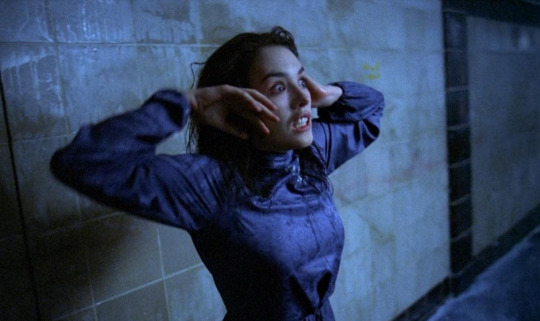
This review contains spoilers.
Andrzej Zulawski's Possession is a movie I'd somewhat been dreading revisiting. When I'd seen it all those years back (on YouTube, split into two parts if I recall correctly, as the DVD had been hard to come by in those days), despite being greatly moved by the experience, I'd also found it an extremely exhausting film to sit through. It's a tortured divorce melodrama (among other things) that starts at 11 and only goes up from there. Lots of shouting and screaming, physical abuse, kicking around chairs and tables. The movie is not what I'd call an overtly pleasant experience. Watching it now (on a Blu-ray from Mondo Vision, a substantial upgrade from my original format), while I won't characterize my previous impressions as inaccurate, I was able to better appreciate how the movie modulates this tone, acclimatizing us to its fraught emotional space. The movie starts off in the realm of a normal, bitter breakup, with the husband having returned from a work trip only to learn that his wife is leaving him and struggling to make sense of it, his frustration and anger stemming as much from the fact of her dissolving their relationship as his inability to comprehend her motivations. It isn't really until the half hour mark that it asks us to dive off the deep end with it. The husband hits his wife in the middle of a fight, follows her onto the street as she tries to halfheartedly throw herself onto the path of a truck, which then drops its baggage in an almost comical bit of stuntwork, their squabble ended when the husband becomes surrounded by children playing soccer and joins in. Any one of these by itself is nothing out of the ordinary, but Zulawski assembles them into an off-kilter crescendo, and does away with any sense of normalcy for the rest of the runtime.
That this approach works as well as it does is largely thanks to Isabelle Adjani as Anna, the wife, who spends the aforementioned scene looking like a vampire in cat eye sunglasses and blood streaming down her grimacing mouth. She delivers perhaps the most bracingly physical performance I've seen in a movie, but again this is something I'd maybe underappreciated initially in terms of how finely tuned her choices are. An early scene where she fights with her husband has her manically cutting raw meat and shoving it into a grinder, as if to channel her frustrations into acceptable form of violence for women. When she takes an electric knife to her throat, she begins to spasm about like a farm animal during a botched slaughter, providing a further comment on her domestic situation. The film's most famous scene has her freak out in a subway tunnel, thrashing her limbs about chaotically but almost rhythmically, maybe like the contractions when goes into labour. Her character later describes this as a miscarriage, ejecting the side of her which is neat and orderly and "good". Adjani plays this other half as well, with a much more old fashioned hairdo (braided conservatively like a stereotypical schoolmarm), one which provides a much more tender maternal figure to the couple's son. Adjani is also well cast because of her emotive, saucer-like eyes, which she isn't afraid to point at the camera repeatedly, providing a genuine emotional grounding during both the quieter and more hysterical sections of the movie.
Her husband, Mark, is played by Sam Neill, who had been cast after the filmmakers had seen him in Gillian Armstrong's My Brilliant Career. To understand why Neill works so well, it helps to know that Sam Waterston had previously expressed interest in the role. Waterston, while a good actor, would have come off too fogeyish as the husband. Neill brings the appropriate edge and even sex appeal necessary for the material. And like in Jurassic Park, his best known role, he brings an inquisitive quality that keeps him close enough to our vantage point to give the narrative arc some grounding. The other major human character here is Heinz Bennent as Heinrich, a new age guru who happens to be having an affair with the wife. One on hand, this character represents the counterculture from Zulawski's homeland, which he had left after trouble from the authorities when making his last movie. On the other hand, Zulawski was drawing heavily from the bitter divorce he had just gone through, and directs a sizable fraction of the movie's contempt at this character, leading me to believe that his wife in fact left him for some new age buffoon. In one of the movie's funnier scenes, he has Heinrich confront Mark over Anna's disappearance and then go into a dumbassed trance while spouting new age nonsense and basically calling Mark a Nazi. This is the guy his wife left him for? This jackass? Mark sets him up by sending him to Anna, knowing full well he could be killed, but the potency of Mark's rage (and Zulawski's, by extension), as well as the ludicrousness of the Heinrich character, keep us from sympathizing with the latter too much. Zulawski has Heinrich die with his head in a toilet, a final flush by Mark serving as one last hilariously mean-spirited gesture of contempt.
Zulawski originally conceived the movie as having another major character, Anna's ex-husband, to be played by veteran actor and director Bernard Wicki, but after the first day of shooting with Wicki, he decided to drop the character entirely. (I suppose it depends on the personalities, but I wonder how actors react to being let go early from a project. Is it worse if it's on the first day? How about if you lead the filmmakers to realize they should do away with the character altogether? I only hope Wicki got paid.) It's not hard to see what purpose this character would have served, particularly in the way that Anna "upgrades" her lovers, having traded a much older man for the younger, sexier Mark, and then trying to replace him with an evolving monstrous fuck-squid (more on this later) that she was trying to nurture and reshape into the ideal partner. The only remnants of this character in the finished film is his young wife, who appears in the climax and his goaded by the "new" Mark (the final form of the fuck-squid) to shoot into the corpses of the real Mark and Anna. The character's proposed thematic purpose might have spelled out this moment's significance more clearly, but I'm not always convinced thematic clarity is preferable to how things move and feel, and the end product does not feel incomplete or incoherent, or at least not detrimentally so. The emotions make sense, even if the events onscreen are outside the norm. (My condolences to those of you who've been dumped for a monstrous fuck-squid.)
Having been conceived after his last project was quashed by authorities in Poland, there's undeniably a political element here, enhanced by the noticeable presence of the Berlin Wall, near which much of the film is situated. (At one point the camera looks out the window and sees the police from East Berlin staring back.) The realities of the Cold War figure heavily in the characters' lives, as it's suggested that Helen (the other Adjani) is from behind the Iron Curtain (she speak of readily identifiable evil, which could be interpreted as the visible presence of an authoritarian regime) and that Mark's work is in the field of intelligence, maybe even espionage. But the movie is less interested in pointing out political specifics than in the accompanying sense of repression and division, which plays heavily into the visual style. The movie often divides its frames to separate the characters, but rarely with any sense of symmetry, suggesting a sense of emotional chaos enhanced by the bruising mixture of wide angle lenses and handheld camerawork. When we're with Mark, the movie looks overcast, bluish grey, appropriately repressed at first, although Anna's presence throws his neat, fluorescently-lit apartment into disarray. Anna's love nest, situated in the Turkish district right beside the Wall is dilapidated and unkempt, which may have reflected the squalid realities of a hastily rented apartment in what I assume is a poorer part of town, but after having excised the orderly part of herself, it seems like an accurately messy reflection of her headspace.
Now back to the fuck-squid. It's hard to go into Possession this day and age completely blind, and even back when I first saw it, it came on my radar as the movie where "Isabelle Adjani fucks a squid". I have a lot of respect for Zulawski for delivering the goods on this front and for Adjani for throwing herself into this material, not because I'm some kind of sexual deviant who gets off on this stuff (although if you are, I'm not here to judge, it's a free country, just clear your browsing history after), but because modern arthouse cinema often defaults to a mode of cold, downplayed and too afraid to raise the audience's pulse (because apparently it's undignified to force a reaction out of the audience) and it's nice to see a movie serve what it says on the tin (this is one I'd have loved to see with an unsuspecting audience back in the day). Producer Marie Laure-Reyre notes that Zulawski was very hands on with the conception of the monster, drawing inspiration from gargoyles in Polish architecture, as if to further imbue political context into the proceedings. When seeing the end product, I can only assume Zulawski broke up with his wife at a seafood restaurant (I would hope he didn't react like Mark and throw around all the tables and chairs). Of course, the design of the monster means that the movie leans heavily into body horror, and its inclusion on the Video Nasty list in the UK and its release in the US in a heavily-trimmed 81-minute version emphasizing these elements likely contributed to its psychotronic reputation early on. (I am still interested in seeking out this cut, as I can't imagine the loss of 40 whole minutes wouldn't substantially alter the film's character.) It flirts with other genres as well. Certain scenes have a clear slapstick quality. Some of these involve Heinrich, the ever-reliable target of the film's ridicule, but there is also Margit Cartensen, playing Anna's friend and Mark-hater Marge, falling on her ass like a Three Stooges bit. And there's the climax, parodying action movies with its woozy cocktail of car chase, shootout and explosions, which leads a headlong rush into the film's apocalyptic final moments.
4 notes
·
View notes
Note
Can you tell me about Yakuza 0? I've never played it before and would like to read your thoughts on it.
YOOOOOOOOOOO LES FUKIN GO (thank u!!)
This review is spoiler-free!
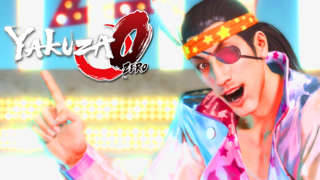
Despite what you might assume a game about a bunch of tough muscley fighting dudes, the amount of moral philosophy in this game could rival a 3-part episode of Star Trek: TNG in terms of surprisingly deep and emotional thought. The struggles the protagonists go through has a huge emphasis on honor, keeping your word, taking responsibility for your actions, standing up to things you think are wrong and persevering no matter how much pain, suffering and threat you personally go through all in the name of trying to be a good person, and emphasizing that the mental fortitude to stand for your convictions is the true strength, not just brawn. Character development is absolutely fantastic and I feel like it’s impossible not to fall for these main characters by the end of the game, no matter how weird or even pigheaded they might seem to you at first.
(Trust me, moral philosophy is probably my biggest autistic hyper-fixation. They did this shit GOOD.)
Another major reason I really love Yakuza 0 is that it takes an unusual setting to the normal person - the incredibly political, dark, yet surprisingly realistic setting of organized bullies, criminals, and the uneducated brawn and bad-attitude baddies of the world and try to show them as worthy of more as humans like you and me than just trash that should not be seen or touched. The amount of humanitarian outlook on these people and the humanitarianism of our protagonists is absolutely heartwrenching and beautiful. Despite appearances, anyone can be a good person - this seems to be a major message in this story which I just find absolutely beautiful.
The yakuza definitely have different rules to their world, and that is one that’s built on violence over paperwork, especially when it comes to showing eachother the extent of their passion about something. I feel like it’s an excellent way of portraying the difficulties any normal person goes through with their mental health while struggling to do the right thing in a very direct and relatably painful way that anyone can understand.
The story deals with not only the importance of preserving life and protecting it with surprisingly pacifist ideologies, but the aesthetics in align with the idea that no matter how dark the world or your life feels, happiness is always an option.
Why you might love Yakuza 0 even if the plot doesn’t sound that interesting to you:
Tons of minigames - I think about 28~30 total. That includes 4 actual vintage SEGA arcade games! There’s also tons of gambling games like black jack and shogi, fishing, rhythm games, bowling, fighting tournaments, pool, darts, stock car racing, doll dressup.. It’s very hard not to find at least one you’ll like!
Tourism. Yakuza 0 has such an incredible amount of visual detail to every nook and cranny of every corner and unseen alleyway in the town maps that it feels just absolutely insane to me. The devs didn’t need to put in all this detail but they did. I could legit spend hours in first person mode just looking at everything. On top of that, every restaurant in town has a detailed menu describing each item despite the fact that all food items are just generic healing items. I think there’s even a bar where the bartender will go on a spiel talking about certain drinks after you order them. The atmosphere really makes you feel like you’re truly taking a vacation in another place. Great for when you’re longing to see new scenery while being stuck at home all the time during COVID.
The amount of optional side quests is absolutely insane. According to a wiki there’s a total of 100 side quests in all. If you’re a fan of JRPGs or a fan of completionism, completing them all gives you a ton of extra content and side-stories that can sometimes be just as gutwrenchingly wholesome or tragic as the main plot, or otherwise be great comic relief.
Speaking of comic relief, this game is notorious for it. The main plot can be incredibly serious and stressful and the devs know that can really wear down on the mental state of the player after awhile, so seeing Kiryu dance at a disco in the most lame awkward embarassing dad way possible, or see him pick up a phone in the most ridiculously over-dramatic way for no reason, or see Goro sing lovey-dovey pop songs is just something that will absolutely kill you with laughter and joy and give you a refreshed break you need to help you be able to keep continuing on.
Big fan of seiyuu (Japanese voice actors)? The karaoke bar lets you hear your protagonists’ gorgeous singing voice. You can even invite some side characters and hear their voices too!
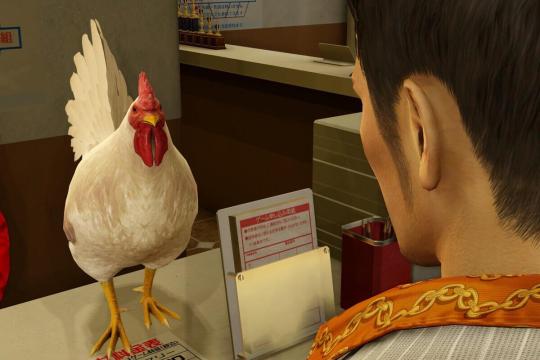
NOW THE FAIR CRITICISMS:
Despite the plot having a huge emphasis on how important the morality is of not killing, fighting animations are often totally lethal. Goro canonically fights with a knife and a bat by the end of the game. Both characters can use guns, swords, poisoned knives, baseball bats and other lethal items as a weapon. One of Goro’s main fighting animations is snapping a dude’s neck. Kiryu threw a dude out of a high window. Kiryu shoots at dudes with a gun in a high speed chase at some point and none of these instances are ever addressed in canon plot as having blood on the hands of these characters - no matter what, the people hurt by these things seem to be able to stand up fine later on like nothing happened. Even the main characters can get shot by an actual gun 20 times in a row and shrug it off by shoving convenience store food down their throat. It’s super dumb but absolutely hilarious in it’s unaddressed B-Movie esque hypocritical nature and became a huge in-joke with the fandom. Despite these Goofy Video Game Logic instances, the main plot (specifically the cutscenes) are all extremely realistic and well done. Actual members of real-world Yakuza say the story is pretty accurate to reality.
One of the minor characters is obviously a trans woman but is misgendered constantly by other characters, including the protagonist (though this may be a translation problem), and is the only female character in the game you can fight and have to fight in order to unlock Kiryu’s endgame fighting style (though he remarks he only fights her because she looks like she can handle herself in a fight). She does end up joining up with you as an ally afterwards without changing anything about herself so that’s a positive, I guess? SEGA is aware of fans’ dislike for transphobia and have removed a lot of transphobic content from their re-releases of future Yakuza games, as well as shown the protagonist, Kiryu, as a huge LGBTQ+ ally.
-----------------
Things you might like or otherwise want to check out relating to the same story style of Yakuza 0 I personally highly recommend:
Kyou Kara Ore Wa!! (aka, "From Today, It's My Turn!!"): Absolutely hilarious gag comedy with surprisingly heartwrenching drama and incredibly lovable in-depth characters. It’s about highschool delinquents in the late 1980s (same era Yakuza 0 takes place!). The two main characters remind me a lot of the protagonists of Yakuza 0 in that one is very straight-laced and honorable while the other is more prone to dirty tricks but still does the right thing in the end. I personally recommend reading the manga above all because adaptations cut out a lot of details that I feel add a lot of depth to the characters, but the OVA anime is pretty good on it’s own and there’s a hilarious live action TV show adaptation if you like slapstick.
Rookies: A story about an impossibly determined formerly disgraced highschool teacher doing absolutely everything he can to be the best teacher he can be. Part of his journey is helping reform a group of delinquents who have self-sabotaged themselves into having their baseball team - the one thing they cared about - disbanded. The delinquents constantly fight the teacher off, believing him to just be another adult putting on airs instead of truly caring, while the teacher perseveres no matter what to prove them wrong. A manga and live action drama - both extremely good.
1 note
·
View note